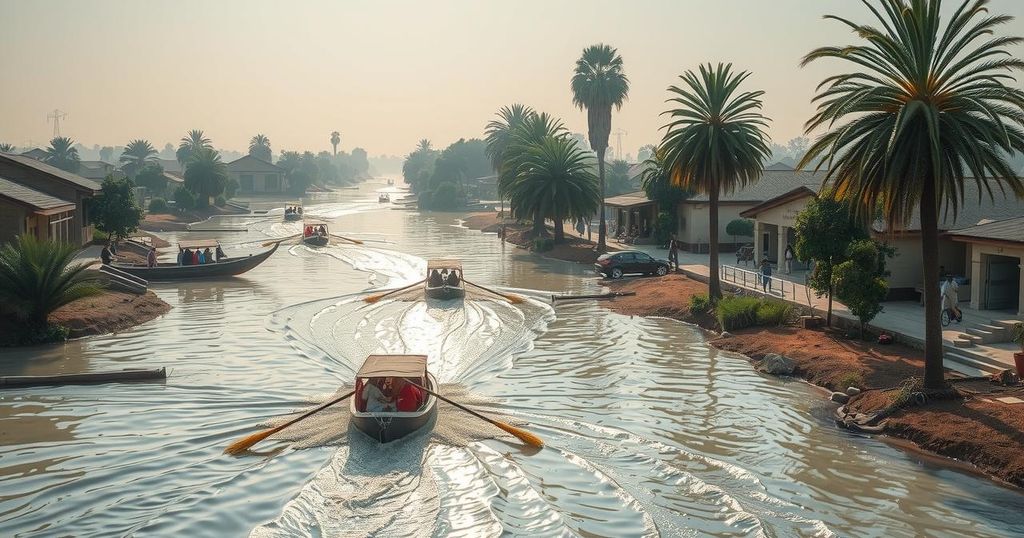Devastating Flooding of River Nile Forces Thousands in South Sudan to Seek Shelter

The overflowing River Nile has displaced thousands in South Sudan, forcing them to seek refuge along the Jonglei Canal. With villages flooded and crops ruined, communities face dire circumstances marked by food scarcity and a lack of essential services. As climate change exacerbates flooding, reliance on international aid becomes more critical yet increasingly strained.
The recent overflows of the River Nile have compelled thousands of people in South Sudan to seek refuge along the banks of the Jonglei Canal, transforming this area into a haven for those displaced by devastating floods. With villages submerged and farmland destroyed, communities such as Pajiek are struggling to survive in a landscape greatly altered by consistent floodwaters. Key agricultural livelihoods are at risk, and many families rely heavily on food aid, amidst stark shortages of medical resources and infrastructure. As climate change intensifies flooding in the region, local populations daily face the consequences of their changing environment as they attempt to adapt to an increasingly precarious existence.
The River Nile’s annual flooding has historically impacted the pastoral lifestyle of communities living in South Sudan, particularly in the Sudd region, known for its vast wetlands. Over time, however, flooding has worsened due to climate change, leading to the displacement of nearly 380,000 people this year alone. The construction of infrastructure, such as the partially completed Jonglei Canal, reflects past efforts to manage seasonal waters, yet many areas remain under-resourced and unsupported by the government, creating a dire humanitarian situation.
In summary, the severe flooding along the River Nile has led to dislocation, agricultural decline, and substantial humanitarian challenges for South Sudanese communities. With inadequate infrastructure and increasing reliance on aid, families are enduring hardships while navigating the threats posed by their environment. Without significant support and remedial action, the future well-being of these vulnerable populations remains uncertain.
Original Source: www.independent.co.uk






